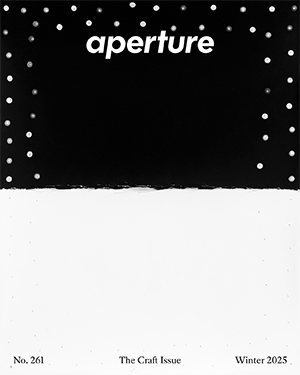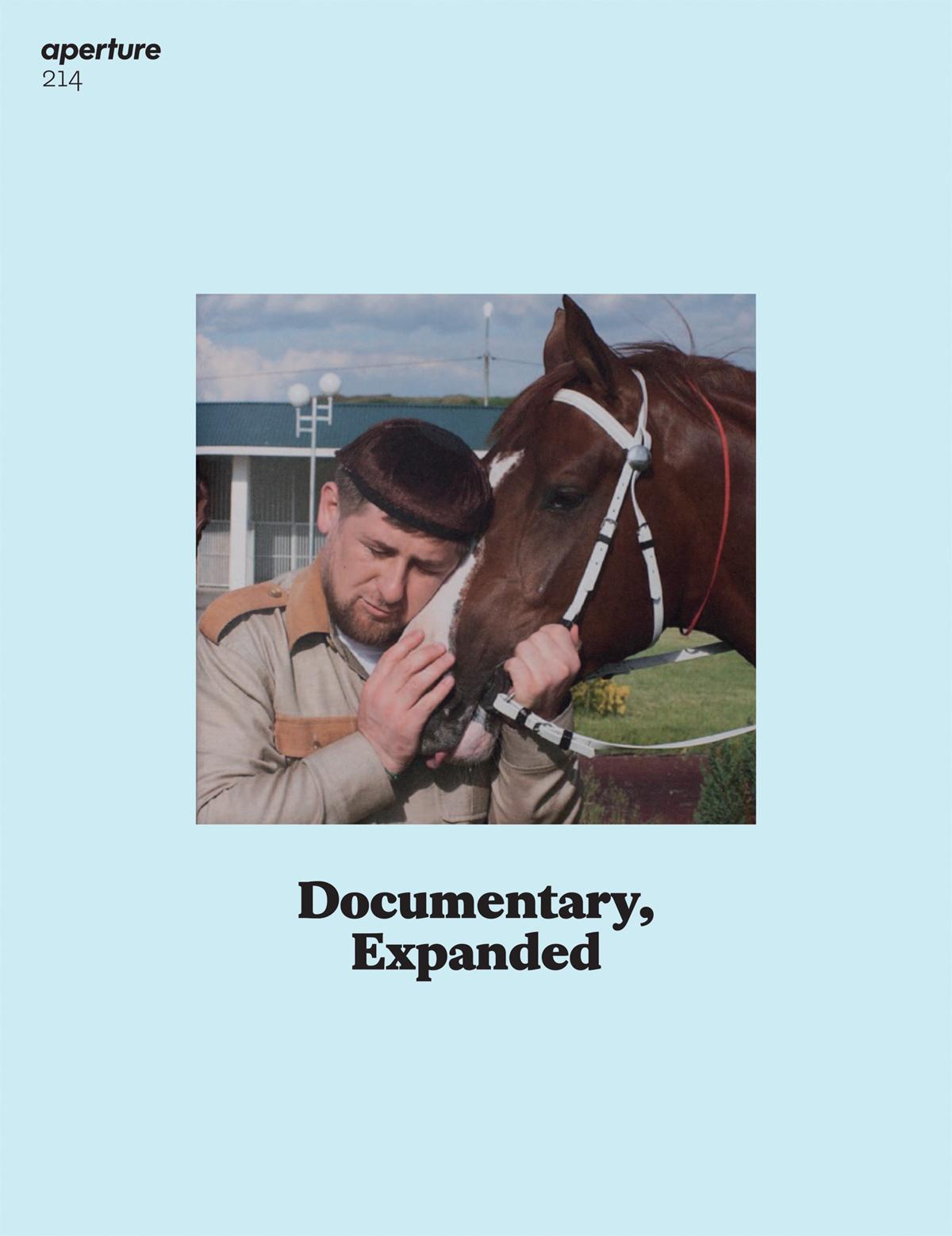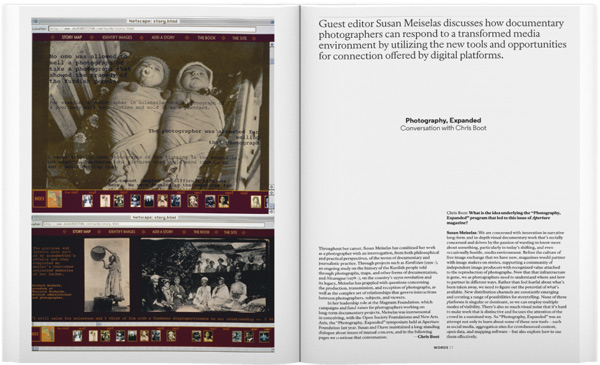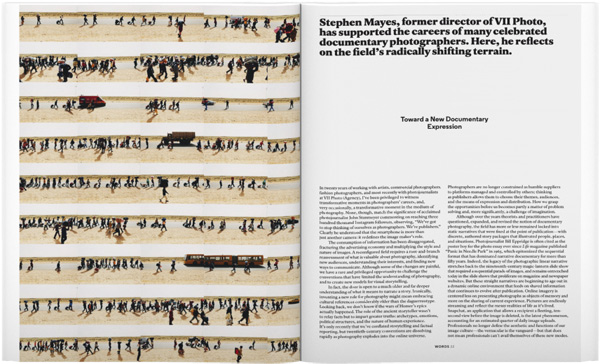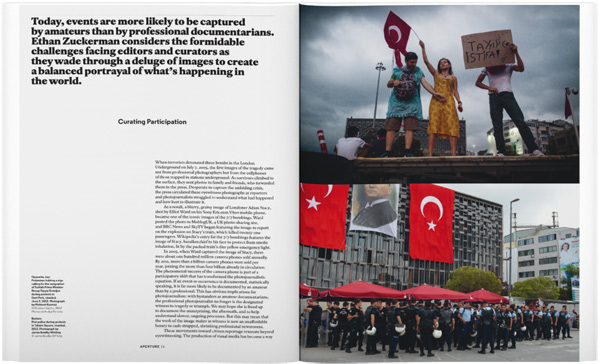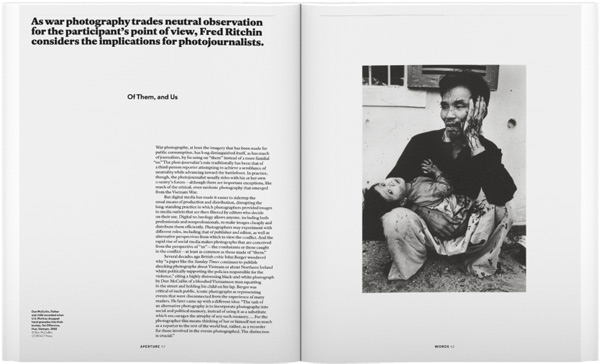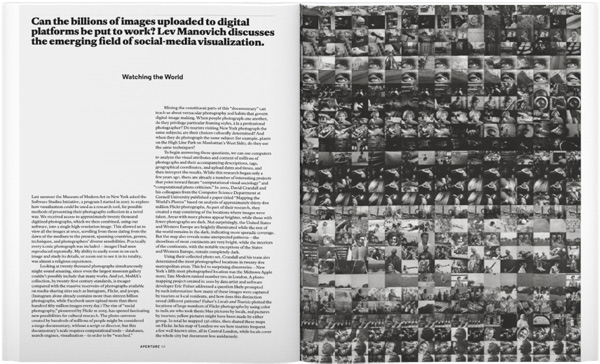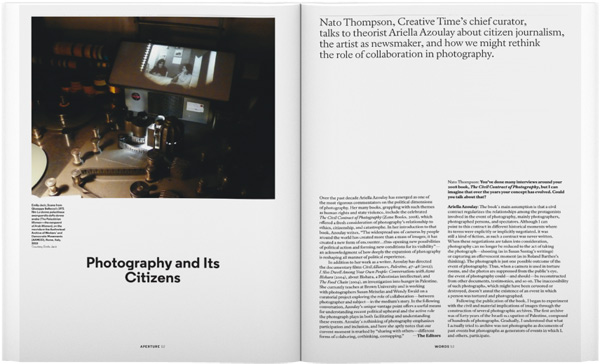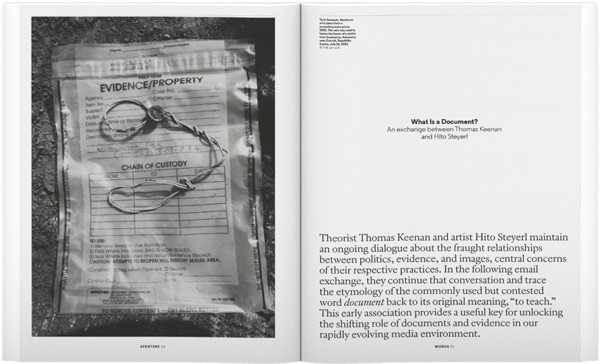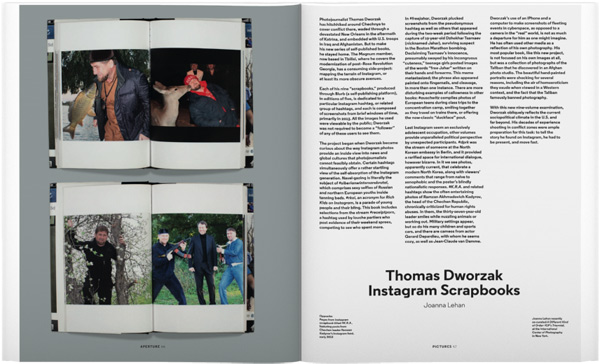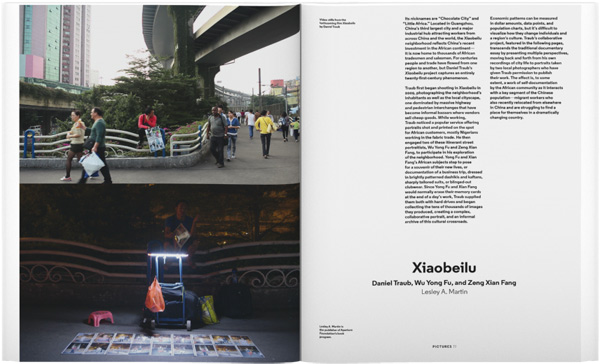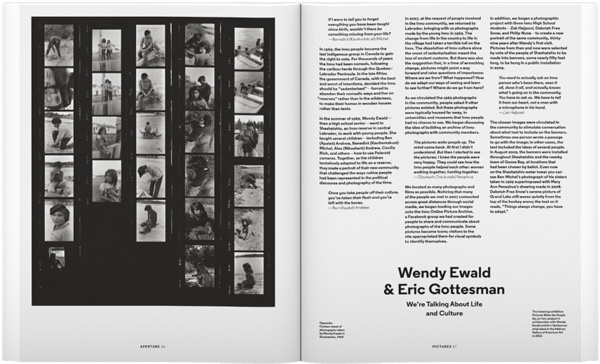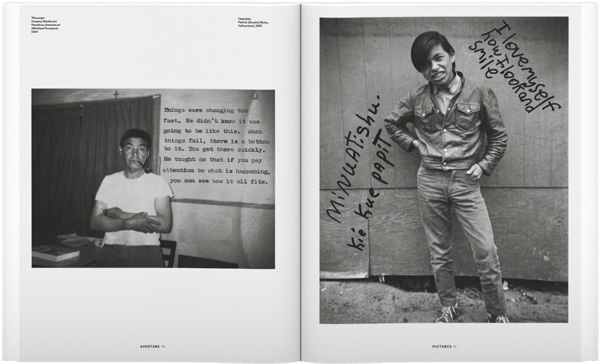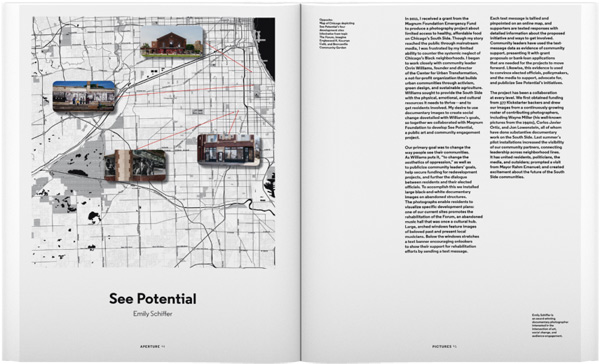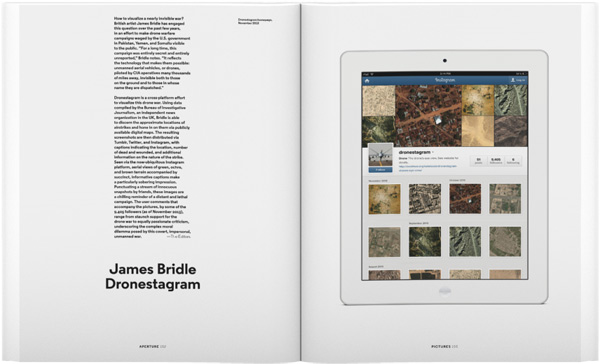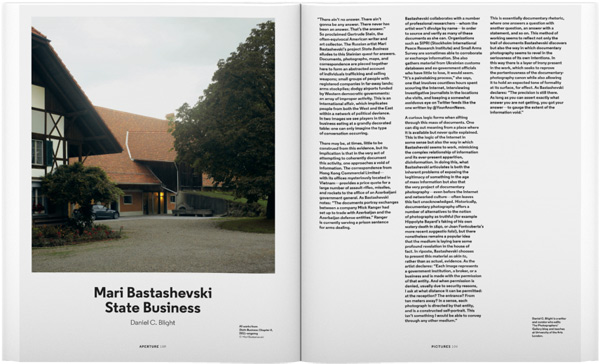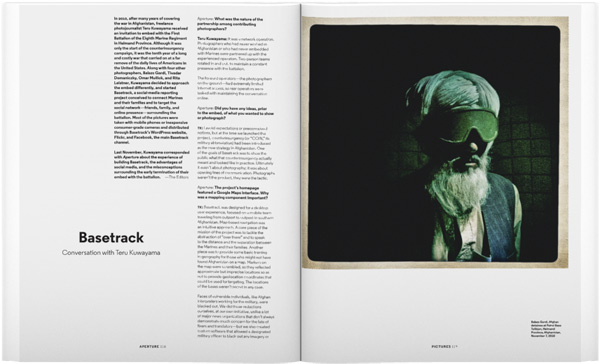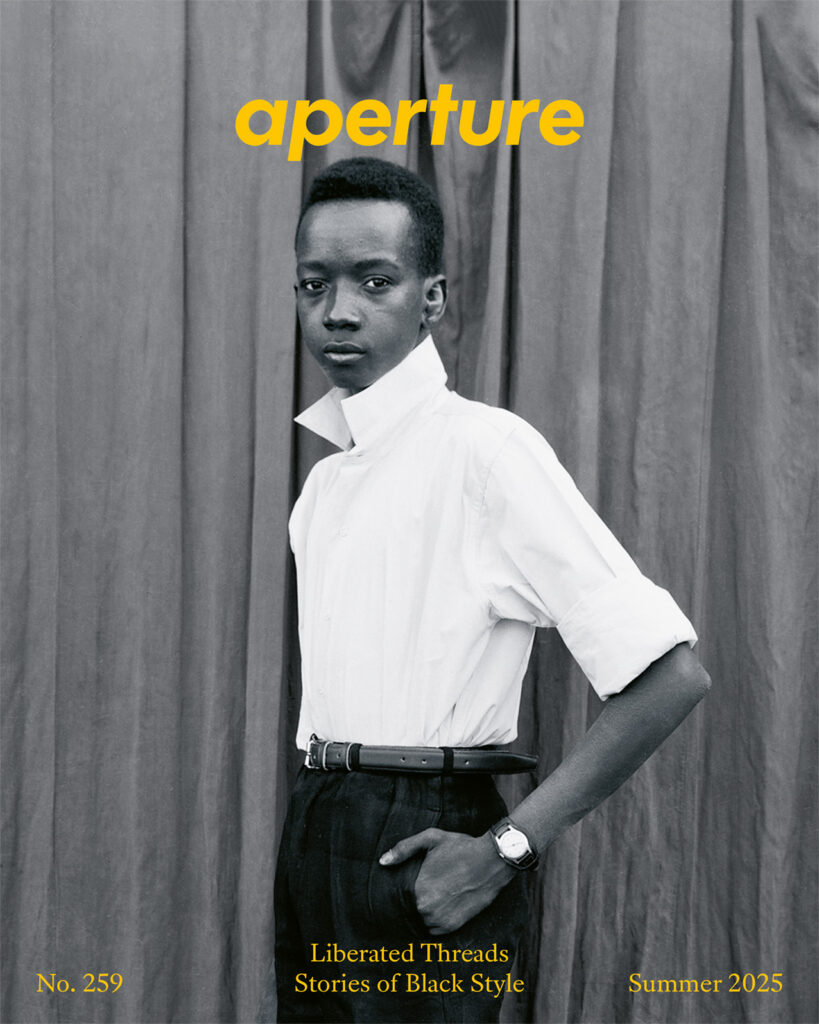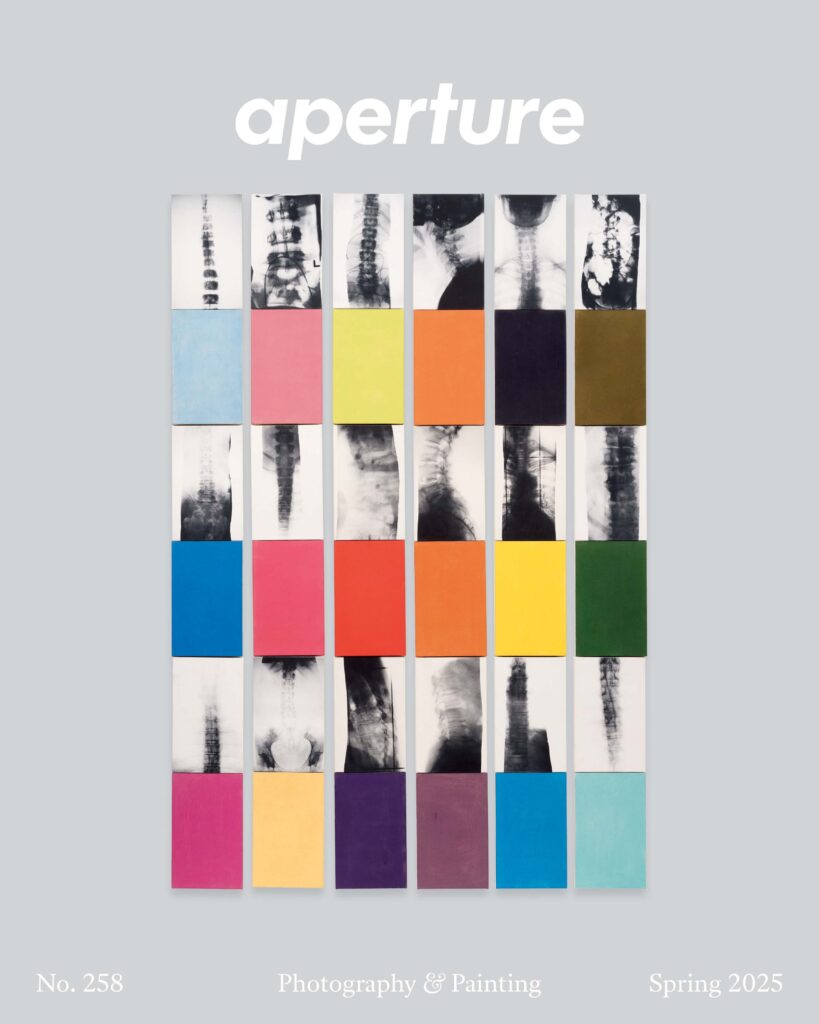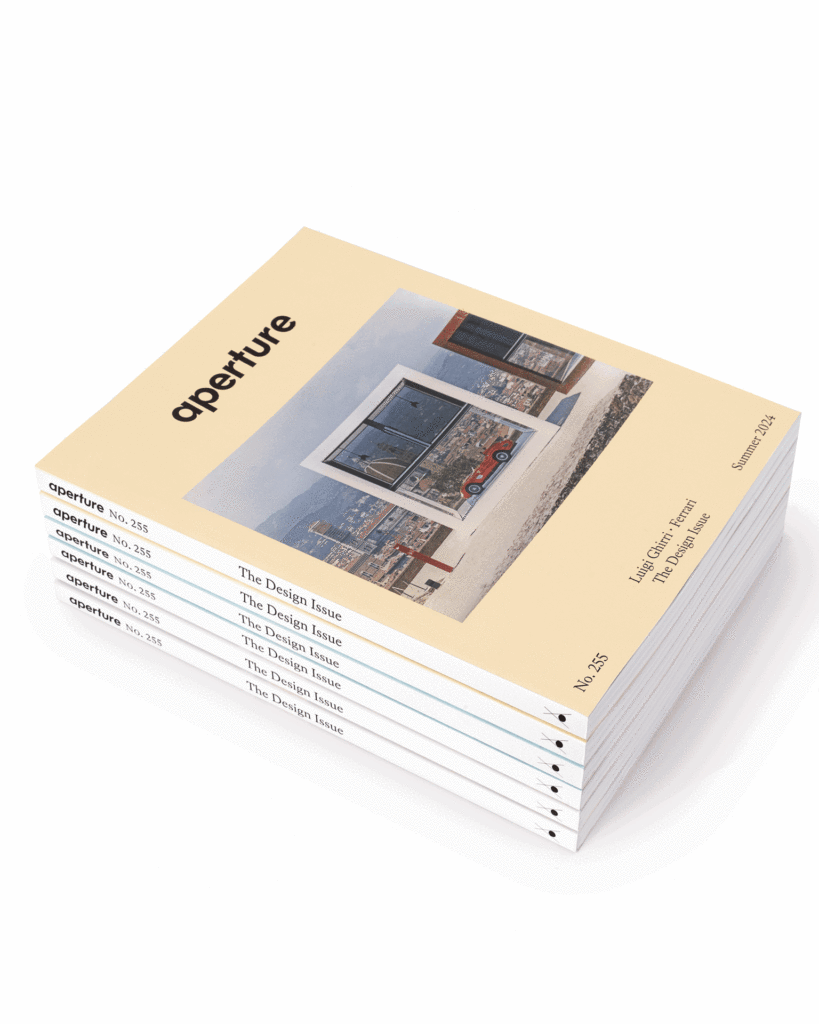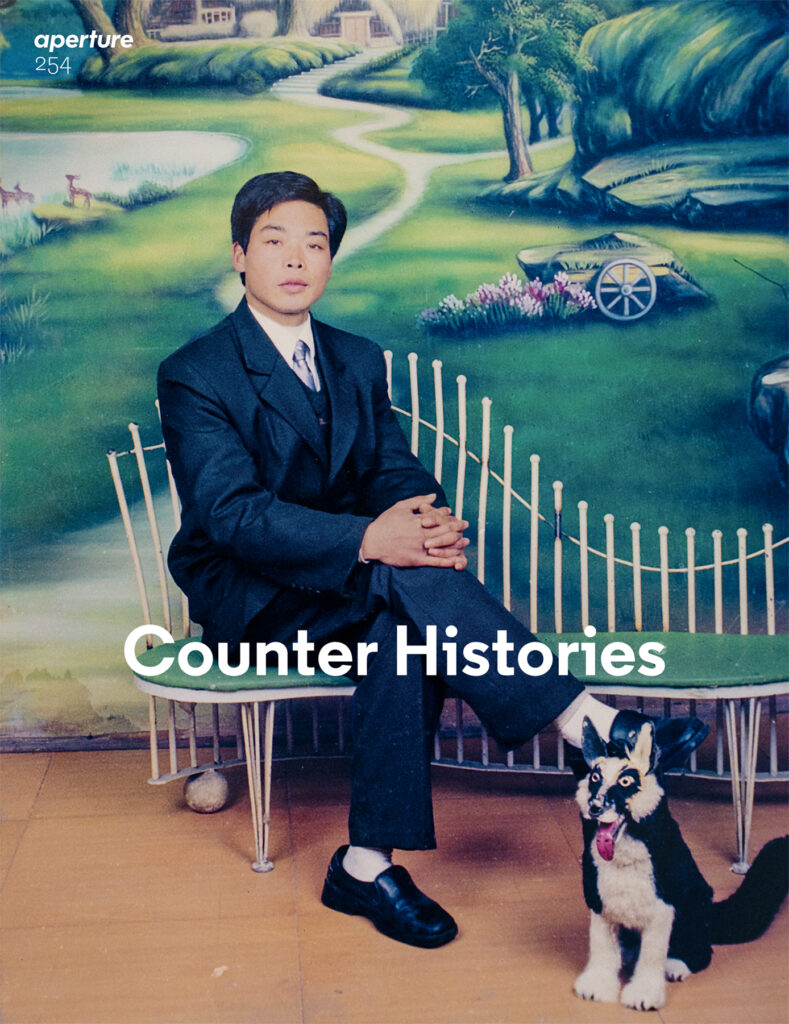Aperture 214 - Spring 2014
Documentary, Expanded
Created in conjunction with Magnum Foundation and guest editor Susan Meiselas, “Documentary, Expanded” explores a cross-section of critical questions for practicing documentarians today, when the old models for producing and disseminating work have disappeared.
Receive immediate and unlimited access to this full issue with an Aperture Archive account. Get started for free.
Get an alert when the product is in stock:
Featured Content
Issue Details
How socially minded storytellers adapt to
a new terrain of image making.
The ground for documentary storytellers has radically shifted over the last decade. How can socially-minded storytellers adapt to this new terrain? Created in conjunction with Magnum Foundation and guest editor Susan Meiselas, this edition of Aperture, “Documentary, Expanded,” explores a cross-section of critical questions for practicing documentarians today, when the old models for producing and disseminating work have disappeared.
Meiselas, in an interview with Chris Boot, Aperture’s executive director, discusses the need for photographers to adapt and embrace new technologies, tools, and strategies; Ariella Azoulay, in conversation with Creative Time’s Nato Thompson, reflects on the important role of collaborative ways of working in the history of photography; Ethan Zuckerman considers the benefits and pitfalls of citizen journalism and image aggregation, while Lev Manovich presents his work with big data and social-media visualization. The essay section is rounded out by additional pieces by photojournalism experts Fred Ritchin and Stephen Mayes, and a dialogue between artist Hito Steyerl and theorist Thomas Keenan.
The magazine’s portfolio section presents new projects that use social media, data mapping, or collaboration to engage on current social-political themes. Thomas Dworzak documents Instagram’s role as a political or news mouthpiece; Daniel Traub collaborates with local photographers to document African laborers in southern China; Wendy Ewald, Eric Gottesman, and members of Canada’s Innu people build a community archive; Emily Schiffer shares her photography and mapping project on Chicago’s underserved South Side; artist James Bridle documents an invisible war with Dronestagram; Mari Bastashevski explores the global arms trade; and Teru Kuwayama discusses Basetrack, a social-media reporting project connecting Marines with their families.
Format: Paperback / softback
Number of pages: 128
Number of images: 0
Publication date: 2014-02-28
Measurements: 9.2 x 11.9 x 0.6 inches
ISBN: 9781597112802
Table Of Contents
Front
Words
Photography, Expanded
Susan Meiselas in conversation with Chris Boot
Toward a New Documentary Expression
By Stephen Mayes
Curating Participation
By Ethan Zuckerman
Of Them, and Us
By Fred Ritchin
Photography and Its Citizens
Ariella Azoulay in conversation with Nato Thompson
What Is a Document?
An exchange between Thomas Keenan and Hito Steyerl
Pictures
Thomas Dworzak: Instagram Scrapbooks
Introduction by Joanna Lehan
Daniel Traub Wu Yong Fu, and Zeng Xian Fang: Xiaobeilu
Introduction by Lesley A. Martin
We’re Talking About Life and Culture
Wendy Ewald & Eric Gottesman
See Potential
Introduction by Emily Schiffer
James Bridle: Dronestagram
Mari Bastashevski: State Business
Introduction by Daniel C. Blight
Basetrack
Conversation with Teru Kuwayama
